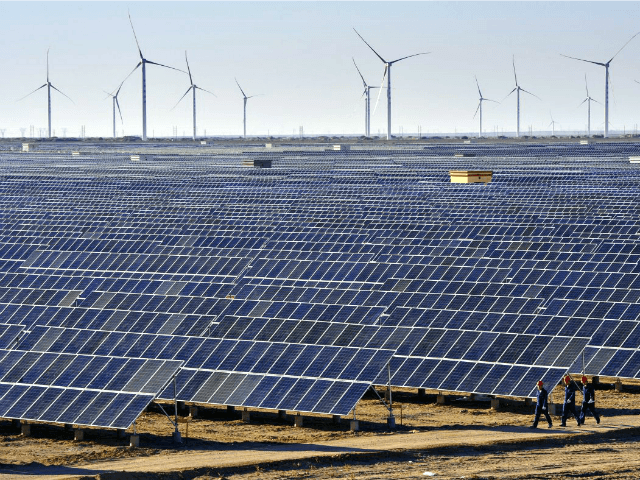The United Kingdom is considering a proposal to build the world’s largest solar power farm in the Kent countryside, yet local campaigners have warned that the project poses risks to the surrounding areas, claiming that if a fire should occur at the site the result could be an equivalent to a “small nuclear bomb”.
The proposed Cleve Hill Solar Park near Faversham, England would house one million solar panels taking up an estimated 900 acres of land. The battery facility alone would cover 25 acres and would contain lithium batteries that campaigners fear would be vulnerable to fire, and could explode, devastating the surrounding area as well as releasing toxic chemicals into the air.
An online petition against the proposed solar farm has attracted nearly 4,000 signatures from concerned residents, and said: “These batteries, which are untested at this scale, are prone to runaway fires leading to massive explosions and the emission of toxic hydrogen fluoride gas that can kill or maim over a large area.”
“An explosion would have the energy of a small nuclear bomb. Lithium-ion batteries have a history of spontaneous fires that cannot be put out with water and can throw flames 70ft high,” the group added.
The vice president of the Campaign to Protect Rural England (CPRE) in Kent, Richard Knox-Johnston told The Sunday Telegraph that: “The size of this storage is five times the current largest similar battery storage in the world and poses unacceptable risks. It is equivalent to 602 tons of TNT, which is 1/20th of the TNT equivalent of the Hiroshima atom bomb,” he added.
If the claims are correct, the potential explosive energy would be equivalent to the smallest functioning nuclear weapons ever produced. Regardless, the claimed blast would be devastating.
Dr Erasin, an expert in biochemical engineering, warned that if a fire should occur at the power storage facility, it could send toxic hydrogen fluoride gas as far as six miles around the site, as well as pointing to the history of lithium batteries catching fire.
“There are well-documented significant risks associated with large-scale energy storage units, including the risk of fire, and leaching of heavy metals into the environment during catastrophic events,” he said.
“In 2018 AIG Energy Industry Group reviewed lithium-ion battery energy storage systems and commented that ‘battery fires are often very intense and difficult to control. They can take days or even weeks to extinguish properly'”, Erasin warned.
A decision on whether or not the project will go forward will be decided later this month by Alok Sharma, the Secretary of State for Business, Energy and Industrial Strategy.
The local Member of Parliament for Faversham and Mid Kent, Helen Whatley, urged the government to reject the proposal, saying that the solar farm would have a “devastating” impact on the countryside.
“We’re not talking about a few fields – this would destroy an entire landscape. I want to see us reach net-zero by 2050, but this should not come at any cost,” Whatley said.
Follow Kurt on Twitter at @KurtZindulka

COMMENTS
Please let us know if you're having issues with commenting.